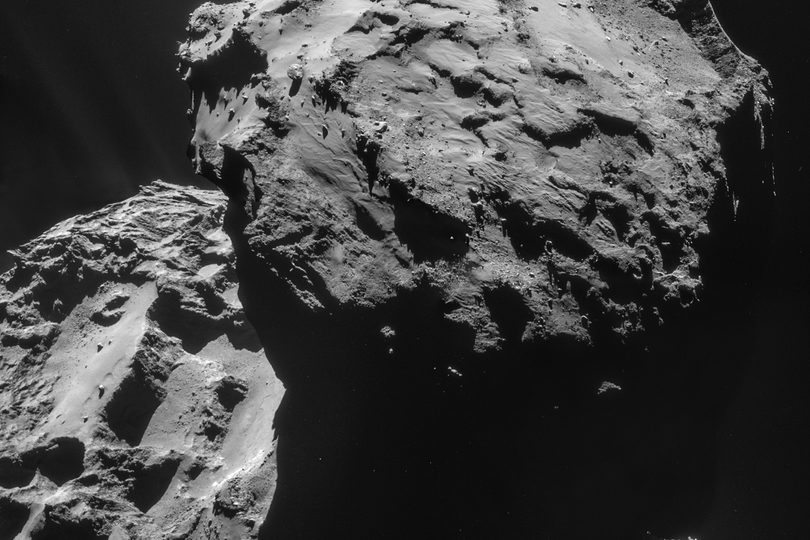
On 12th November 2014, after a 10 year journey, the Rosetta spacecraft's lander Philae touched down on the surface of the comet 67P, also known as Churyumov–Gerasimenko. The robotic European Space Agency lander not only took images from the comet’s surface, the first images in history, but obtained data that was sent back to be analysed. This data will be used to determine the composition of the surface of the comet. But what does this mean? And what implications does it have?
Professor Chris Lintott, Professor of Astrophysics, University of Oxford and presenter of the BBC’s Sky at Night will talk about the history and the science of the voyage and Professor Ian Goldin, Director, Oxford Martin School and Chris will discuss the implications and politics of Europe’s mission to study a comet that is three hundred million miles away.
This talk will be followed by a drinks reception, all welcome.
About the speakers
Professor Chris Lintott, is Professor of Astrophysics, University of Oxford and former Co-Director of the Programme on Computational Cosmology, an Oxford Martin School Programme. His own research focuses on the formation and evolution of galaxies, and he leads Zooniverse.org, the world's most successful collection of citizen science projects which engage more than 800,000 volunteers in classifying galaxies, discovering planets and exploring the Serengeti. An advocate for the public understanding of science, he is best known as co-presenter of the BBC's 'Sky at Night'.
Chris is an expert on machine human interface and the analysis of big data.
Professor Ian Goldin, Director, Oxford Martin School and Professor of Globalisation and Development at the Univeristy of Oxford. He has a BA (Hons) and a BSc from the University of Cape Town, an MSc from the London School of Economics, and an MA and Doctorate from the University of Oxford.
Ian has received wide recognition for his contributions to development and research, including having been knighted by the French Government and nominated Global Leader of Tomorrow by the World Economic Forum.
He has published over 50 articles and 19 books, including Globalization for Development: Meeting New Challenges (Oxford University Press, 2012), Exceptional People: How Migration Shaped our World and Will Define our Future (Princeton University Press, 2011) and The Economics of Sustainable Development (Cambridge University Press, 1995) and Divided Nations: Why global governance is failing and what we can do about it, (Oxford University Press, 2013). His two most recent books are The Butterfly Defect: How globalization creates systemic risks, and what to do about it (Princeton University Press, 2014) and an edited volume Is the planet full? (Oxford University Press, 2014.